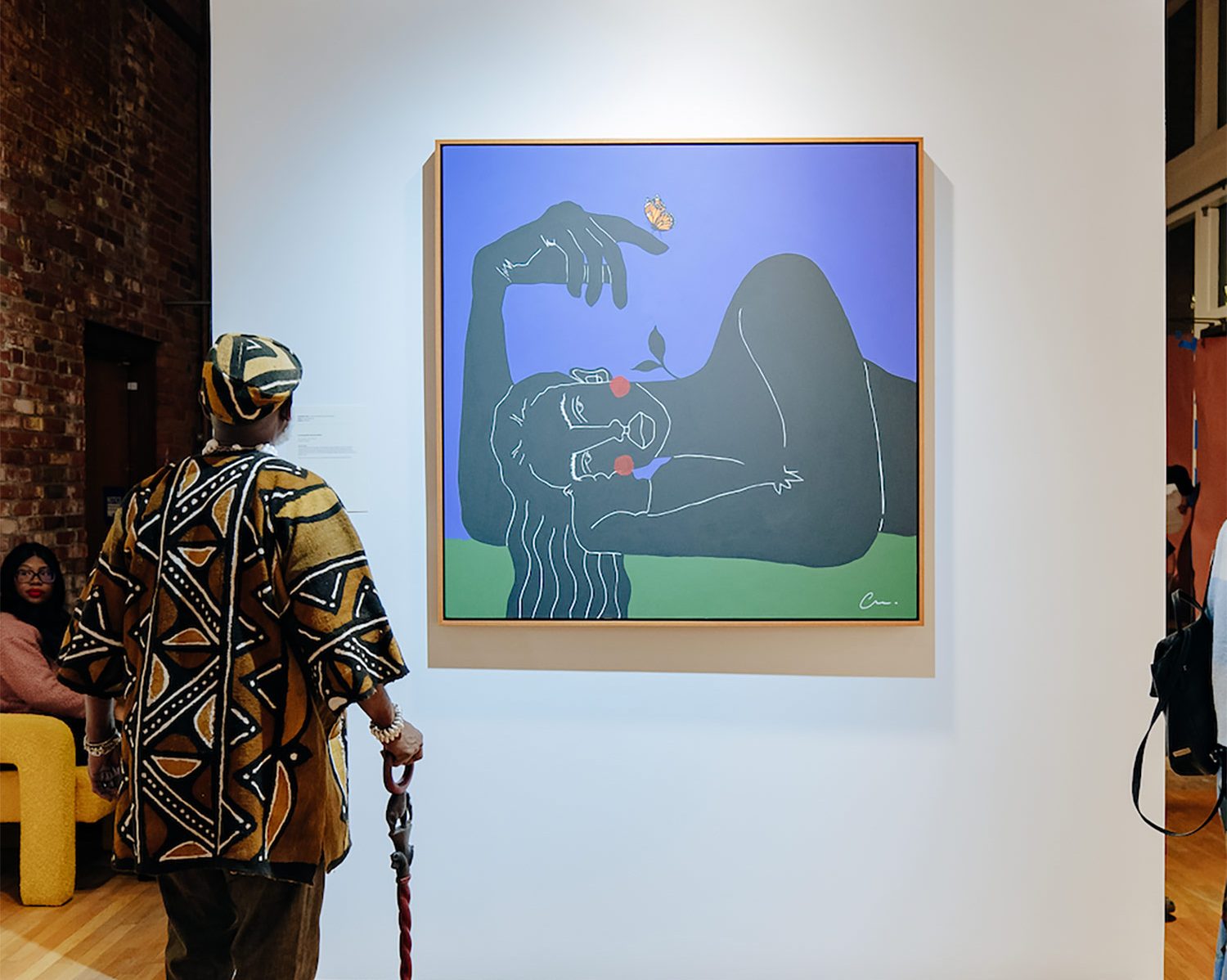YAMANTAKA // SONIC TITAN
 Pitchfork describes YAMANTAKA // SONIC TITAN as “psych-opera.” Press point yarn. This is not psych-opera, dudes; at least, not in musical style. When in consideration of YT//ST, one is inundated with hype terminology — including the band’s calling themselves “Noh(能)-Wave” (aka Traditional-Japanese-Dance-Theatre-Wave) and even more obnoxiously, “hyper-orientalist.”
Pitchfork describes YAMANTAKA // SONIC TITAN as “psych-opera.” Press point yarn. This is not psych-opera, dudes; at least, not in musical style. When in consideration of YT//ST, one is inundated with hype terminology — including the band’s calling themselves “Noh(能)-Wave” (aka Traditional-Japanese-Dance-Theatre-Wave) and even more obnoxiously, “hyper-orientalist.”
While I am all for incorporating multicultural influences into one’s music, there is a degree of intense Asian fetishism present in YT//ST’s schtick that translates to their image in an arguably trite way. “Queens,” “Reverse Crystal // Murder of a Spider,” and “Hoshi Neko” from their new record certainly have moments of genre-crossing excellence. I don’t want to take away from that. But the music itself is not really opera, barely psychedelic, and definitely not hyper-orientalist, save for the use of the Japanese language. The genres that are crossed are more steeped in noise, metal, and pop; the hyper-orientalism plays out in facepaint (presumably in honor of Asian opera), music videos that seem a bit “tokidoki”, and pop art paper sculpture sets.
YT//ST call themselves a multi-disciplinary art collective, and they incorporate illustration and installation art into their performances. Fantastic! The way of the future! I admire their impetus! But what is it about Japanese and Asian culture that makes such emulation and fetishism culturally acceptable? While it is true that the two main ladies behind the project are themselves of mixed Asian heritage, at what point is it genuine, and at what point kitsch? These are just some things to contemplate while you decide yourself, via album stream and live performance video, below.
See an interesting discussion with PRINCE RAMA bout the topic of genuine versus kitsch HERE.
Swahili Blonde
Swahili Blonde also incorporate different multiple genres to break new musical territory. But at least their comparison points are actually rooted in discernible influences rather than just ridiculous buzz words. Yes — in Swahili Blonde you can hear evidence of the “unconventional dubby art-rock,” “Caribbean influences,” and “angular funk” of which they speak. And hell, though they didn’t use the description of “psych-opera,” I hear it more in their music and see it more in their visuals than in YT//ST’s. Their record, Psycho Tropical Ballet Pink, came out late last year, and the tracks “Etoile De Mer” and “Purple Ink” are great examples of genuine experimental groovy weirdness, not just emulation and fetishism. Stream the entire record below.
Directed by Burke Roberts.







“While I am all for incorporating multicultural influences into one’s music, there is a degree of intense Asian fetishism present in YT//ST’s schtick”
I believe it is sloppy to level accusations of ‘fetishism’ without actually unpacking what that means. Also, I don’t know if you actually read the group’s mission statement and understood exactly what YT//ST’s purpose is. The ‘Opera’ reference is from the fact that YT//ST is first and foremost an art collective that has been performing musicals on a quarterly basis since 2007, and only just in 2011 did we choose to release our first record. In fact, our last musical, ’33’, recently ran at a theater in Toronto, Ontario. The music was written for left field stage performances that feature prominently numerous individuals of Asian and First Nations descent, doing work that navigates Western perceptions of our cultures through a kind of experimental/new age/whatever kind of lens in order to question the very essence of what is ‘Asian’ or ‘Native’ or ‘Ethnic’ in North America. Though this may not vibe well with a fast or lazy take on identity politics, the work itself has been made with those considerations in mind, and is about creating new traditions in America.
Now as to your other statements, I worry that they sound somewhat assimilationist though likely unintentional. The concept of authenticity is a joke in North America, and as mixed race individuals we are forced to choose to act ‘White’ and ‘Western’ but still be pointed at and proclaimed to be ‘insertculturehere’. If we were to ‘perform’ our ancestral traditions, we are accused of appropriation unfairly in comparison to those who are full blood. Nothing we ever do as a group infringes on traditions in a way that would be offensive, but instead we tear apart racist media portrayals, insert ourselves inside of them and then make them into cartoonish and theatrical epics.
In light of all that, I do not completely disagree with your analysis because it is that kind of conversation that we wish to provoke as artists, but I question why YT//ST is considered ‘fetishistic’ and ‘appropriative’ in comparison to Swahili Blonde (the name itself plus the ‘dub’ sound could be argued to be extremely appropriative or even offensive by some) and Prince Rama (two white girls using Indian tropes informed by their time as Krishnas [we’ve actually had breakfast with the group and we mean no ill by mentioning them]). At least YT//ST is straightforward and honest about how ethnicity and appropriation plays into art. Also, ‘Noh-wave’ was a pun on ‘No-Wave’ and ‘hyper-orientalist’ was a post-structuralist mockery of ideas of the East in the modern psyche, as informed by a post-cyberpunk movement headed by author William Gibson. None of those terms were written as ‘hype’ but rather from the artist statements of actual conceptual artists influenced by statements on ethnicity by musicians like Sun Ra, artists like Kent Monkman and drag from the LGBT community. Most other artists working do not even have the conversation, but reap the benefits of packaging those ideas without proper acknowledgement and often receive a carte-blanche because they don’t even talk about it.
So you can take from it what you will, but I felt that needed to be clarified.
Thanks for the response! The dialogue is appreciated, including the clarification of William Gibson ideas and such.
no problem. i’d rather be confronted with these kinds of responses to talk about, rather than endless comments about how ‘weird’ we are, and some really uncomfortable race questions that come up in some interviews the rest of the time. as a group we are always engaged with the identity politic, though we may take a more confrontational and bizarre way of approaching it than many. and though we don’t intend to offend, we understand that many people have many definitions as to what their shared identities and there is no one right way to talk about these issues, as we engage with our experiences around these issues in our own unique ways. however, i digress and forget to say thanks for enjoying the music regardless!
Respect. Thanks.
[…] ethnicity and are practicing Buddhists, which they openly express as having influenced their sound. Redefine Mag are fans, but are a bit cynical about it saying, there is a degree of intense Asian fetishism […]